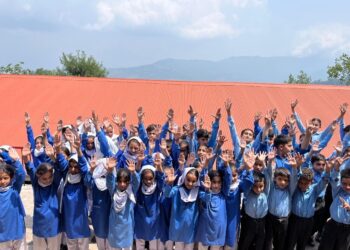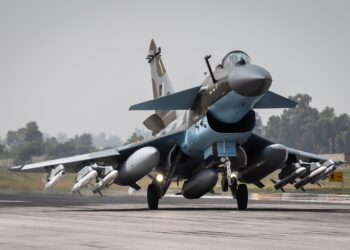Introduction: Mounting Economic Pressures Trigger Public Sector Uprising
Karachi, Pakistan — Amid rising inflation and growing economic hardship, government employees in Karachi took to the streets on Monday under the banner of the Sindh Employees Alliance, demanding an immediate increase in salaries and pensions. The protest, which began peacefully near Fawara Chowk, soon escalated into a tense standoff with law enforcement after police resorted to lathicharge (baton charge) to disperse the gathering.
This public display of frustration underscores the deep-rooted discontent among Pakistan’s government employees, many of whom say they are struggling to survive as inflation hits historic highs and wage adjustments remain stagnant.
Location and Scale of the Protest
The protest occurred near Fawara Chowk, a symbolic and strategic location in the heart of Karachi. Hundreds of public sector workers from various government departments, including education, health, municipal services, and civil administration, gathered to voice their demands. They carried placards, chanted slogans, and raised red flags, symbolizing unity against what they called the government’s “economic apathy.”
The Sindh Employees Alliance, a coalition of multiple government worker unions across the province, had announced the protest several days earlier, warning of escalated demonstrations if the government did not respond to their calls for relief.
Demands of the Protesters
At the heart of the protest was the demand for salary and pension increases in line with the soaring cost of living. Protesters expressed frustration that while prices of essential goods, fuel, electricity, and transport have increased multiple times over the past year, salaries have remained unchanged.
“We are unable to pay school fees, utility bills, or even buy basic groceries. Inflation is killing us, and the government is silent,” said Naeem Shah, a municipal worker and union representative who participated in the demonstration.
The employees also criticized the 2025–26 federal and provincial budgets, which they say failed to provide meaningful salary revisions or pension adjustments for retired government workers, despite Pakistan’s inflation hovering at over 24% in recent months.
The protestors made the following key demands:
- Minimum 30% increase in basic salaries
- Adjustment of pensions in accordance with current inflation
- Regularization of contract-based employees
- Release of detained protesters
- No political victimization of union leaders
Police Crackdown and Detentions Spark Tensions
As the protest gained momentum, police forces were deployed to control the situation. According to Karachi police officials, protesters were warned to disperse as the rally was blocking a major road and disrupting public movement.
When the protestors refused to move, police carried out a lathicharge and made over 20 arrests. Scuffles broke out between demonstrators and officers, leading to a chaotic scene near Fawara Chowk. Several protesters were reportedly injured, though exact figures are yet to be confirmed by medical authorities.
The police, in their official statement, claimed the protest was unauthorized and disrupted traffic, necessitating enforcement action. However, the Sindh Employees Alliance condemned the police action as a violation of democratic and constitutional rights.
“This is a peaceful protest for our livelihood. Instead of addressing our concerns, the government is using force to suppress us,” said Farzana Jamal, a representative from the women’s health workers’ union.
Political Response and Government Silence
Despite the scale of the protest and the public attention it garnered, the Sindh government has not issued an official statement regarding the employees’ demands or the police action. This silence has further angered public servants, who now plan to expand their protest campaign across other districts, including Hyderabad, Sukkur, Larkana, and Nawabshah.
Some opposition parties have voiced support for the protesters. Speaking in the Sindh Assembly, a member of the opposition called for the immediate release of the detainees and criticized the provincial government for “ignoring the backbone of governance — its civil servants.”
Economic Context: Inflation and Fiscal Austerity
The protest comes at a time when Pakistan is grappling with a severe economic crisis. In order to secure financial support from the International Monetary Fund (IMF), the federal government has adopted austerity measures, which include cutting subsidies and curbing public sector wage growth.
While the IMF program has helped stabilize Pakistan’s foreign exchange reserves, it has also resulted in harsh fiscal adjustments — burdening the middle and lower-income segments of society, including government employees and pensioners.
Over the past year, utility costs have skyrocketed:
- Petrol prices crossed Rs 260 per liter
- Electricity tariffs increased by over 35%
- Gas rates surged by over 50% for residential users
Against this backdrop, the real income of government employees has eroded significantly, prompting labor unions to call for immediate intervention.
Impact on Public Services
The protest and possible strike threats by government employees raise concerns about disruptions to essential services, particularly in education, healthcare, and municipal operations.
“If our voices are not heard, we will have no choice but to go on an indefinite strike across Sindh. This will impact schools, hospitals, and sanitation services,” warned Iqbal Memon, spokesperson for the Sindh Employees Alliance.
Such a strike could paralyze public administration and heap additional pressure on an already burdened population.
Historical Background: A Pattern of Neglect
This is not the first time public sector workers have taken to the streets in Pakistan. In recent years, employee protests have become a recurring phenomenon, especially following budget announcements.
In 2021, thousands of federal employees held a sit-in in Islamabad, demanding pay raises and pension reforms. Similarly, in early 2023, teachers in Punjab protested over stalled promotions and contract regularization.
Despite repeated assurances from successive governments, systemic reforms remain elusive, leading to further erosion of trust between the public workforce and the state.
What Lies Ahead: A Brewing Labor Movement?
The Sindh Employees Alliance has announced plans for further mobilization if their demands are not met. Labor unions are now mulling a province-wide strike call, possibly joined by health workers, teachers, and municipal staff.
Political analysts warn that continued neglect of wage issues may result in a broader labor rights movement, especially if joined by private sector unions and student groups sympathetic to the cause.
The next few weeks will be critical in determining whether the government engages in dialogue or chooses to delay, risking further unrest.
Conclusion: A Wake-Up Call for Policymakers
The protest by government employees in Karachi is not just a call for salary increases—it is a reflection of deeper systemic issues in Pakistan’s wage and pension structures. As inflation tightens its grip and economic conditions worsen for the average citizen, the demand for fair compensation, job security, and respect is gaining momentum.
The government’s response—or lack thereof—will define the course of labor relations in Sindh and potentially across Pakistan. If dialogue and reform are not initiated promptly, the nation could witness a wave of civil unrest that disrupts governance, public services, and social stability.

























